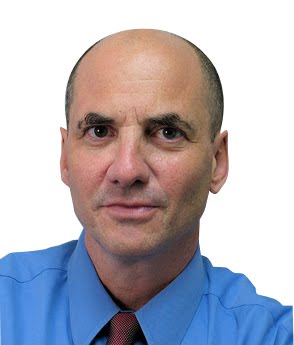
Torching Fear
August 27, 2010
Abe Novick
Special to the Jewish Times
Perched at the front entrance of the Owings Mills JCC on security duty during the Maccabi Experience, I waved in car after car of parents dropping off their children, host families picking up their children and busloads shuttling them back and forth between events.
What struck me was how all of it, all of it, was done for the children. It was all done for the future. What an amazing sight. Anyone who wandered through the JCC was witness to wall-to-wall teens teeming with exuberance and a glow of energy. In turn, their youthful presence provided a reciprocal warm feeling inside anyone over the age of 18 and gave of themselves in any small way.
But then my flight hit some turbulence as the next day’s newspaper landed on my driveway and I wondered about their future and what, ultimately, we’re actually leaving them.
In three bold front page photos, The New York Times ran a story describing the devastation from the floods drowning Pakistan, wildfires consuming Russia and excessive rain in the Midwest moving many in the scientific community closer to a consensus — (as if Baltimore couldn’t tell ’em) — it’s getting warmer.
As Bobby Dylan once sang, “You don’t need a weatherman to know which way the wind blows.” Still it’s not just the times that are a changin’. “The climate is changing,” concurs Jay Lawrimore of the National Climatic Data Center.
Turning the news page to another part of the blazing forest, there lives a modern day Haman who is ever closer to gaining the capacity to set off and ignite a fire and “wipe Israel off the map.”
I watched as a shaken and distraught Caroline Glick, senior Middle East fellow with The Center for Security Policy, recently spoke about Iran at Moses Montefiore Anshe Emuhah Synagogue. She opened with, “In a very real sense, the Jewish people are in peril today in a way they haven’t been in a very long time.” You can find her hour-long talk on Youtube.
From a global rise in anti-Semitism to the inordinate amount of anti-Israel propaganda aimed at the tiny democracy, they’re sticks and stones when compared to the very real threat of Iran with the bomb.
As John Bolton pointed out, Iran is not the atheistic Soviet Union and this is not the Cold War. Iran is a theocracy that believes their reward will come in the next life. Therefore, life is not what’s sacred, but death is. Iran won’t be contained the same way we’ve done it in the past.
Then there’s the ultimate ponzi scheme - the debt that’s mounting for our children and grandchildren. Without an expanding economy, our debt gets worse and worse. But rather than investing in smart growth, we borrow from China to pay for the oil that we import from the same dictators that hate us and seek to destroy us.
At the opening ceremonies, there was a slide show with the faces of Jewish athletes and artists from years gone by. I wonder now about the world they were born into — a 20th Century filled with war and destruction and yet they persevered.
Somehow, through strength and promise along with the wisdom we manage to pass onto them, our youth will live to celebrate and give back to their children the same kind of bright torch that was lit that first night.
Abe Novick, whose work is at abenovick.com, writes monthly on the intersection of popular and Jewish culture.

